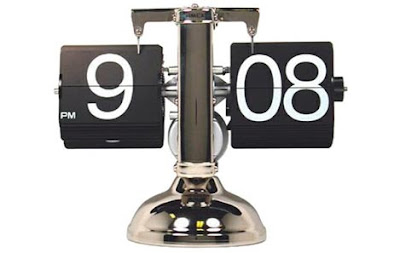|
|
Sponsored Content
Special Forums
News, Links, Events and Announcements
Complex Event Processing RSS News
On state processing and event processing
Post 302281486 by Linux Bot on Thursday 29th of January 2009 02:40:08 AM
|
|
We Also Found This Discussion For You
1. Virtualization and Cloud Computing
vincent
01-20-2009 05:51 AM
Interesting to see the huge interest in Cloud Computing. David Luckham’s complexevents.com just referenced one of several recent Infoworld articles and blogs that attempt to define the term. Another compares the buzz to past excitements - remember Application Service... (0 Replies)
Discussion started by: Linux Bot
0 Replies
LEARN ABOUT OPENSOLARIS
kstat_runq_exit
kstat_queue(9F) Kernel Functions for Drivers kstat_queue(9F) NAME
kstat_queue, kstat_waitq_enter, kstat_waitq_exit, kstat_runq_enter, kstat_runq_exit, kstat_waitq_to_runq, kstat_runq_back_to_waitq - update I/O kstat statistics SYNOPSIS
#include <sys/types.h> #include <sys/kstat.h> void kstat_waitq_enter(kstat_io_t *kiop); void kstat_waitq_exit(kstat_io_t *kiop); void kstat_runq_enter(kstat_io_t *kiop); void kstat_runq_exit(kstat_io_t *kiop); void kstat_waitq_to_runq(kstat_io_t *kiop); void kstat_runq_back_to_waitq(kstat_io_t *kiop); INTERFACE LEVEL
Solaris DDI specific (Solaris DDI) PARAMETERS
kiop Pointer to a kstat_io(9S) structure. DESCRIPTION
A large number of I/O subsystems have at least two basic "lists" (or queues) of transactions they manage: one for transactions that have been accepted for processing but for which processing has yet to begin, and one for transactions which are actively being processed (but not done). For this reason, two cumulative time statistics are kept: wait (pre-service) time, and run (service) time. The kstat_queue() family of functions manage these times based on the transitions between the driver wait queue and run queue. kstat_waitq_enter() kstat_waitq_enter() should be called when a request arrives and is placed into a pre-service state (such as just prior to calling disksort(9F)). kstat_waitq_exit() kstat_waitq_exit() should be used when a request is removed from its pre-service state. (such as just prior to calling the driver's start routine). kstat_runq_enter() kstat_runq_enter() is also called when a request is placed in its service state (just prior to calling the driver's start routine, but after kstat_waitq_exit()). kstat_runq_exit() kstat_runq_exit() is used when a request is removed from its service state (just prior to calling biodone(9F)). kstat_waitq_to_runq() kstat_waitq_to_runq() transitions a request from the wait queue to the run queue. This is useful wherever the driver would have normally done a kstat_waitq_exit() followed by a call to kstat_runq_enter(). kstat_runq_back_to_waitq() kstat_runq_back_to_waitq() transitions a request from the run queue back to the wait queue. This may be nec- essary in some cases (write throttling is an example). RETURN VALUES
None. CONTEXT
kstat_create() can be called from user or kernel context. WARNINGS
These transitions must be protected by holding the kstat's ks_lock, and must be completely accurate (all transitions are recorded). Forget- ting a transition may, for example, make an idle disk appear 100% busy. SEE ALSO
biodone(9F), disksort(9F), kstat_create(9F), kstat_delete(9F), kstat_named_init(9F), kstat(9S), kstat_io(9S) Writing Device Drivers SunOS 5.11 4 Apr 1994 kstat_queue(9F)
